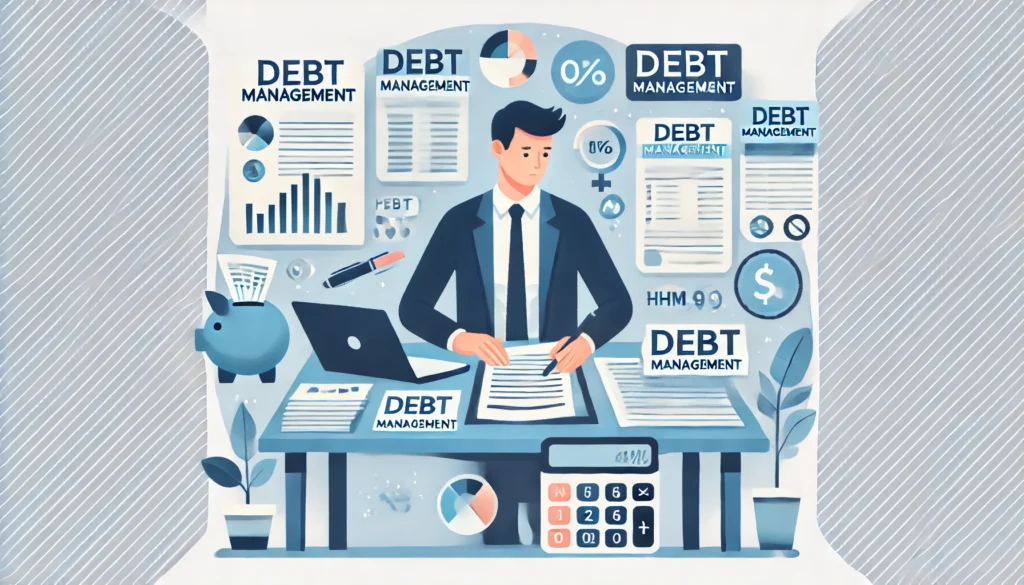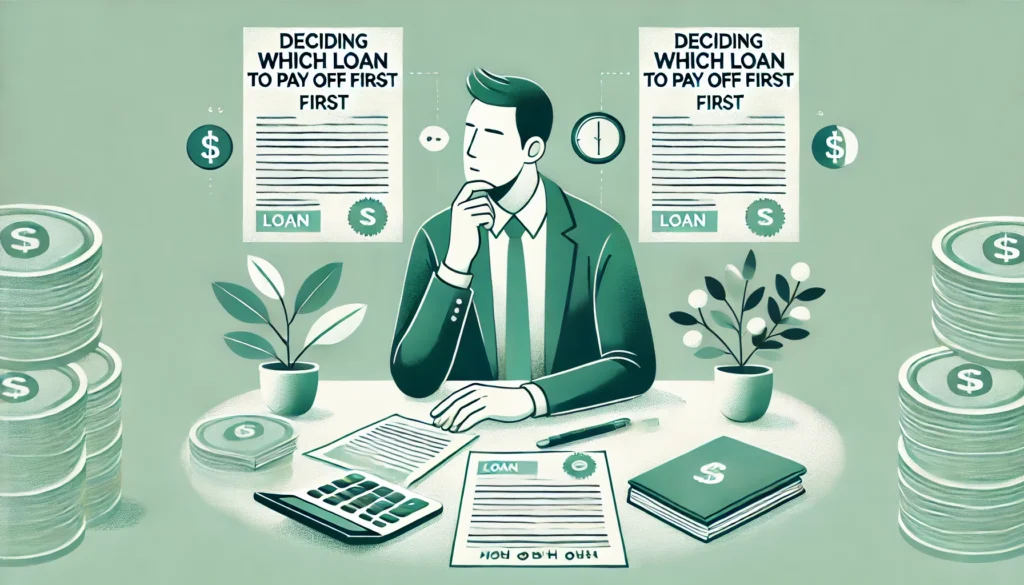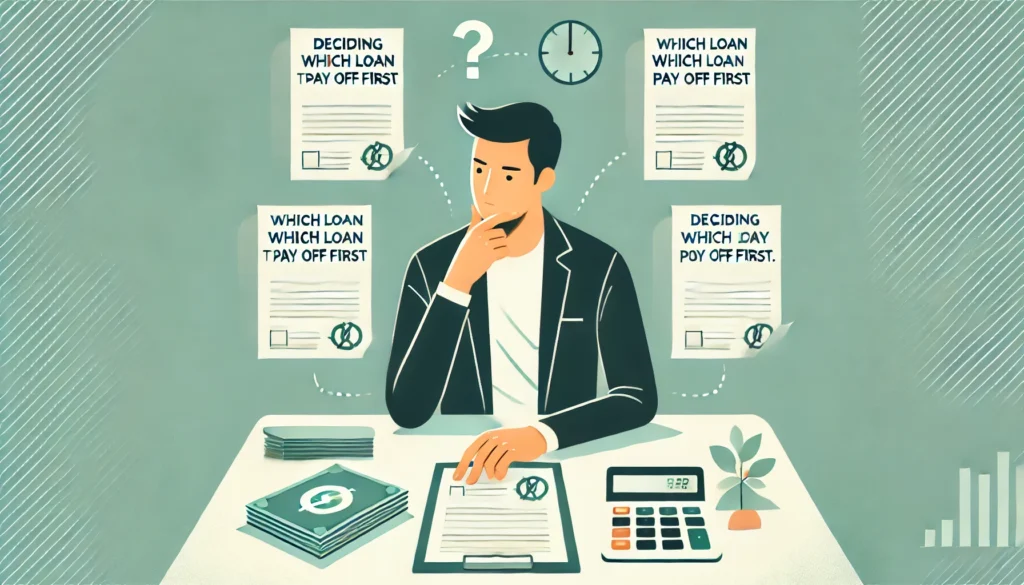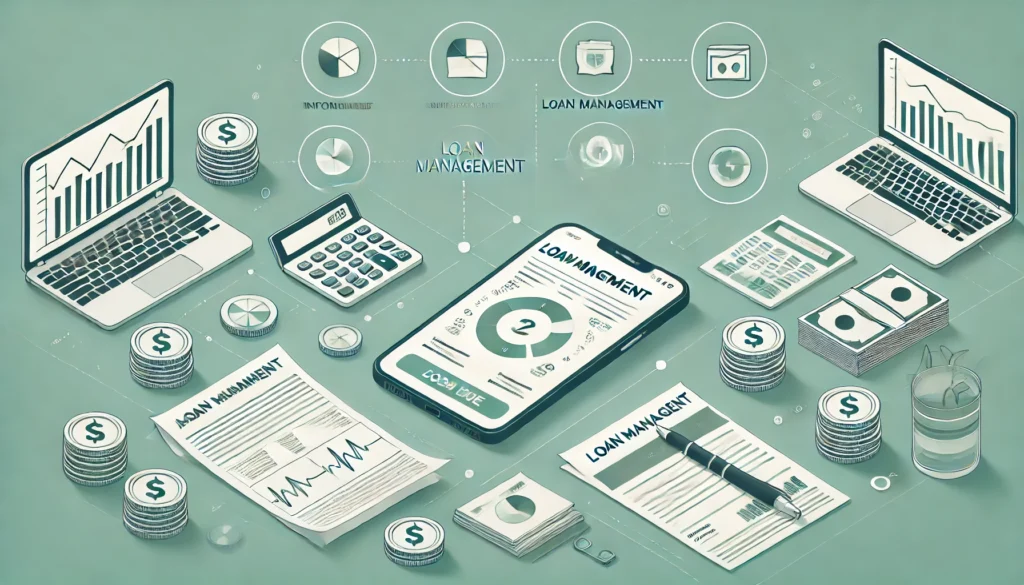Applying an effective debt management strategy is crucial to maintaining the credit score and overall financial stability of the borrower. Debt management refers to strategically handling one’s debts to ensure timely repayment, reduce financial stress, and improve overall financial health.
Here are the 10 effective ways to manage personal loans:
- Create a budget and follow it
- Prioritize your debt, decide which one to pay first
- Identify what good and bad debt and redefine your pay-off strategy
- Follow the debt snowball method for a psychological boost
- Slowly adopt the debt avalanche method to save money in the long run
- Consolidate debts and bring your APR down
- Re-negotiate with the lender to restructure the borrowing terms
- Automate payments to avoid late payments
- Cut unnecessary expenses
- Increase your income by shifting or doing a side hustle
- Seek professional help from a financial advisor, debt counselor, or, a debt relief company.
What is debt management in short?
Debt management is setting and executing strategies to bring down loan payments and financial costs under control.
Usually, managing a loan effectively needs budgeting and financial management skills. An effective budget helps to keep expenses under control and financial management skills involve choosing the right way that help the borrower.

The straight and simple way to manage debt is to seek professional help from a credit counselor, who performs analytical analysis and suggests the best strategy per the borrower’s priority.
However, the best way is to learn about good and bad loans, relative terms such as APR, consolidation or restructuring, and executing a loan management strategy to bring down the overall stress arising from borrowing.
A borrower also needs to prioritize what he wants. For example, deferring a loan or paying off a debt is a choice made by the borrower’s financial stability and target.
Create a personal budget and follow it strictly
A personal budget helps to prioritize the expenses that align with someone’s income and financial priority.
Such budgets help to determine the necessary and unnecessary costs. Following a personal budget can be effective if you have already addressed the need for a better financial plan to face any future uncertainty.

Why does budgeting matter?
Research by the National Foundation for Credit Counseling (NFCC) shows that individuals who use budgeting tools feel financially confident.
A budget serves as a financial roadmap, guiding the borrower toward debt reduction and financial stability in a structured manner.
How would you create a budget?
Here’s how you can create an effective financial budget for better debt management:
- List your income sources by calculating the total monthly income from all the sources you have.
- Categorize your monthly expenses into fixed (e.g., rent, utilities) and variable (e.g., groceries, entertainment). Follow your bank statements to identify the expenses. If you pay a lot in cash, try to note the expenses when they incur.
- Set a clear and achievable financial goal. For example, I chose to pay off a $500 debt in three months with the savings from avoiding unnecessary costs.
- Allocate funds per your defined plan. For example, 25% for home and utility and 15% for grocery.
- Adjust the budget if needed. But, keep it challenging and yet achievable.
You can use free budgeting tools and apps such as Mint, YNAB (You Need A Budget), or even a simple spreadsheet.
An effective financial budget helps with improving the financial stability, debt reduction, ensuring financial discipline, and preparing for emergency expenses.
Additional tips for successful budgeting:
- Automate savings and mandatory payments
- Use budgeting apps
- Review the budget weekly
- Always set a realistic goal
We saw that 41% of Americans follow a personal budget per the survey by U.S. Bank. However, following a budget will have some challenges as well such as sticking to the plan without considering the other factors and the arrival of emergency costs that harm the plans you have made.
Inflation and current rising costs can also disrupt your financial plan and need your continuous effort to make the budget realistic.
How can you prioritize debt?

Prioritizing debt involves identifying which debts to pay off first based on factors such as interest rates, balance amounts, and personal financial goals. Debt prioritization can help reduce the total interest amount, improve credit score, and provide psychological relief.
Here are the steps to prioritize your debts:
- List of all of your debts including credit cards, student loans, car loans, mortgages, and personal loans.
- Identify high-interest loans by comparing APR with each other.
- Choose a debt payment strategy between the snowball and avalanche methods.
- Decide which loans to pay off first.
- Allocate extra payments in your budget to speed up the debt pay-off.
- Review your budget and adjust regularly.
You may also automate payments to maintain savings frequency and avoid late payments. Overall, ensuring financial discipline will help a lot.
What is a debt snowball strategy?
Debt snowball strategy refers to paying off debts that have the smallest balances. The snowball strategy can be a good loan management technique if the borrower prefers mental happiness first.
Example of debt snowball strategy:
Let’s say that you have four loans as follows:
- Credit Card A: $500 balance, 15% interest
- Credit Card B: $1,200 balance, 18% interest
- Personal Loan: $5,000 balance, 10% interest
- Car Loan: $10,000 balance, 5% interest
Referring to the debt snowball application, you should continue paying the minimum balance of Credit Card A first.
So, if you have an extra $200 each month, you should pay $200 (extra) + $25 (minimum) = $225 toward Credit Card A until it’s paid off.
After Credit card A is paid off, you may continue to pay off the minimum balance from the available list of your debt.
In a nutshell, the debt snowball strategy is especially effective for those who need motivation and a clear sense of progress in their debt repayment journey, despite its potential for higher overall interest costs.
What is a debt avalanche strategy?
The debt avalanche strategy focuses on paying the loan with maximum APR. Despite the significance of the debt balance, the borrower should target paying off the loan that costs much.
The debt avalanche strategy does not offer a psychological boost but, targets mitigating the net cost of the borrower and offers plenty of opportunity to save extra.
Example of the debt avalanche straegy:
Here is the list of your debt (let’s imagine again).
- Credit Card A: $500 balance, 15% interest
- Credit Card B: $1,200 balance, 18% interest
- Personal Loan: $5,000 balance, 10% interest
- Car Loan: $10,000 balance, 5% interest
Per the debt avalanche strategy, you should focus on paying Credit Card B which costs 18% (the highest among all).
So, you need to identify how much can you save extra per month. That extra savings will be used to repay the debts of your most mostly borrowings until it gets paid off.
Following the debt avalanche strategy can be stressful if you have any loans with variable interest rates. Due to the variable nature, it will be tougher to estimate the cost of the borrowings. Another problem of the debt avalanche theory is that you need to accumulate additional savings that may cause missing payments on your other liabilities. So, be careful with that.
Identify good and bad debts

Good debts refer to borrowings that add value to the borrower’s future economic stability and wealth. For example, an education loan, mortgage loan, or business loan can help the borrower to multiply the amount and earn extra.
Bad debts are loans that have little or no added value to the borrower’s economic condition. For instance, a credit card with unnecessary bills or a payday loan does not add much value.
Experts also treat an auto loan as a bad loan due to the car’s depreciating nature. However, an auto loan can also be beneficial if you are making economic gains. For example, with a car, taken by auto loan, a borrower may do some side hustle or save time to handle more pressure.
But how does knowing the good and bad loans help?
By knowing the nature of your loan, you can easily prioritize them and set your pay-off strategy. For example, I would prefer to apply a debt avalanche strategy on my bad loans first. It will save my net cost and offer me an opportunity to save extra and repay another loan from the bucket.
Knowing the bad loan will also help to make a budget and find the unnecessary costs.
How does consolidation contribute to debt management?
Debt consolidation is a financial strategy that combines multiple debts into a single loan or credit account. Typically, consolidation is preferred when it offers cheaper interest rate or flexible loan terms.
While managing the loan, a consolidation strategy becomes beneficial by simplifying payments, reducing interest costs, and potentially improving credit scores.
For example, if you merge your existing debts through a consolidation, there will be one interest rate, a single monthly payment, and fixed redefined payback terms.
Through consolidation, borrowers get a hassle-free meeting with different payment dates and multiple interest rates.
Overall, consolidating loans offers the borrower a simple way of paying the existing loans.
Keep in mind that such a strategy can only be applied if the revised cost and loan terms are better than the earlier ones. To assess this, you need to understand how to calculate loan APR and compare the current scenario with the revised one.
Does renegotiating with a lender help in managing debt?

Yes, renegotiating with a lender can significantly aid in managing debt.
With a renegotiation, the borrower can get a loan restructuring opportunity that brings the monthly payments down and comparably greater loan repayment terms.
If any borrower is facing financial difficulty in managing existing debt, a formal request to the lender can bring the interest cost lower or offer an additional grace period on the monthly payments.
In most cases, a renegotiation may not offer you a cheaper rate but, it can get revised monthly payment rules that are obvious in managing debt.
Sometimes, negotiating a lump-sum payoff for less than the total owed can be beneficial if you have access to a substantial amount of money.
However, lenders are not obligated to renegotiate terms, and the outcome depends on their policies and your specific circumstances. Furthermore, renegotiated terms may be noted on your credit report, which could affect your credit score and future borrowing ability.
Are you automating payment to handle your loans perfectly?
Automating a loan payment simplifies paying off your debt per the amortization schedule. To automate any payments, you need to talk to your bank and submit a formal instruction to deduct a particular amount on a particular date each month.
Such automation helps a borrower in longer terms. For example, if the borrower’s income is okay to support existing monthly payments, an automated payment instruction would save the borrower from any missed or late payments.
It saves from penal interest by paying the loan late and improves the credit score for good loan payment behavior.
However, setting an automatic payment instruction can get worse in case of an emergency. So, it is always recommended to maintain a surplus emergency balance so that loan payment behavior becomes regular and the borrower’s emergency access to money gets available every time.
Cut unnecessary expenses and boost your income
Debt management is easy if the borrower follows a budget and prioritizes the debt payment. Paying off loans with extra savings would require avoiding unnecessary costs and making additional savings.
For example, if you set a strategy to repay any loans faster, you need to quantify how much will your additional savings be.
That is why following a budget and mitigating silly costs are essential.
Similarly, such additional savings need additional money which is also possible with maximized earnings.
Shifting to a better job, doing some side business, or negotiating with the employer can increase your monthly earnings and then it will be easier for you to manage your debts.
When will you seek professional help?
Seeking professional help from debt management experts can be beneficial for a borrower with having diversified loan portfolio. Debt counseling or loan management services are advisable only if the borrower is not aware of the technical terms of the loan.
A financial advisor can provide comprehensive financial planning, helping you understand your financial situation, set realistic goals, and create a tailored debt management plan.
A debt counselor can advise on budgeting, spending, and managing debt. They can help you develop a plan to pay off debt and improve your financial habits.
Similarly, a debt relief company can negotiate with creditors on your behalf to reduce the total amount of debt or secure more favorable repayment terms.
According to a study by the Financial Planning Association, individuals who work with a financial advisor like us, are more likely to have emergency savings, diversified investments, and a clear plan for retirement compared to those who do not seek professional advice.
Additionally, The National Foundation for Credit Counseling (NFCC) reports that clients who complete a Debt Management Plan (DMP) by the debt counselor, reduce their overall debt by 70% on average and see an improvement in their credit score.
Lastly, according to the American Fair Credit Council (AFCC), debt settlement clients typically pay around 48% of their enrolled debt amount, including fees, with an average settlement period of 24-48 months.
When would you defer a loan?

Deferring a loan payment works like a temporary postponement method. Loan deferment allows for managing temporary financial hardship, unemployment, or other extenuating circumstances.
However, loan deferment cannot be a permanent debt management strategy. Because deferring multiple payments would downmark your credit score and limit future personal loan potentials.
In short, a loan deferment technique would only help in immediate relief by freeing up cash that would otherwise go towards loan payments and prioritizing more urgent debts or financial obligations during periods of reduced income.
According to the U.S. Department of Education, approximately 3.6 million federal student loan borrowers were in deferment as of the end of 2020 due to economic impacts from the COVID-19 pandemic.
However, you need to account for the associated costs of loan deferment. In most cases, there will be a penalty (penal interest). Deferring mortgage can create additional financial pressures, typically a 3.5% extra. For instance, deferring a $200,000 mortgage for six months would cost an additional $3,500 to the loan balance.
Can you make an early settlement of the loan?
Yes. Paying off any loans early is completely fine and also allows you to boost your credit score and brings a good impression for future lenders.
You can make early settlements if you have sufficient income to make extra savings. There are several methods of making early loan settlements that include making biweekly payments, rounding up, refinancing, and utilizing windfalls.
We suggest that a borrower should pay off loans early if the amount is small so that the money allocated for debt can be helpful for other tasks.
Which apps are best for managing loans?

Here are a few apps that can help you with managing your loans. We are not promoting any of them as the list are solely to assist our readers.
- 1. Mint
- Why It’s Great:
- Comprehensive Financial Management: Mint provides an all-in-one solution for budgeting, tracking expenses, and managing loans.
- Loan Tracking: You can link your loan accounts, view balances, track payments, and receive reminders for due dates.
- Alerts and Reminders: Customizable alerts help you stay on top of loan payments, avoid late fees, and monitor spending.
- Free to Use: Mint offers a robust set of features for free.
- Why It’s Great:
- 2. YNAB (You Need A Budget)
- Core benifits:
- Proactive Budgeting: YNAB emphasizes proactive budgeting, helping you allocate money towards debt repayment.
- Goal Tracking: Set and track loan repayment goals to stay motivated.
- Real-Time Sync: Syncs with your bank accounts for real-time updates on your financial status.
- Educational Resources: Offers numerous resources and tools to improve financial literacy and debt management skills.
- Core benifits:
- 3. Prism
- Things you get:
- Bill and Loan Management: Prism consolidates all your bills and loans in one place, showing real-time balances and payment statuses.
- Payment Scheduling: Schedule payments directly from the app to ensure you never miss a due date.
- Comprehensive Coverage: Supports a wide range of billers and loan providers.
- User-Friendly Interface: Easy to navigate and use.
- Things you get:
- 4. Debt Payoff Planner
- Great for:
- Focused on Debt Repayment: Specifically designed to help you create and stick to a debt repayment plan.
- Customizable Strategies: Choose from different repayment strategies like the debt snowball or debt avalanche.
- Progress Tracking: Visualize your progress with graphs and charts.
- Affordability: Offers a straightforward, low-cost solution for managing debt.
- Great for:
- 5. Tally
- Positive sides:
- Credit Card Management: Tally focuses on managing and paying off credit card debt.
- Automated Payments: Tally can automate payments to ensure you pay down debt efficiently and avoid late fees.
- Debt Consolidation: Offers a line of credit to consolidate higher-interest credit card debt into a lower-interest loan.
- AI Insights: Uses AI to provide insights and recommendations on how to save money and pay off debt faster.
- Positive sides:
- 6. Quicken
- What did we love:
- Comprehensive Financial Management: Like Mint, Quicken offers a full suite of financial management tools, including loan tracking.
- Loan and Investment Tracking: Provides detailed views of your loan balances, payment history, and investment performance.
- Custom Reports: Generate custom reports to analyze your financial situation and loan repayment progress.
- Desktop and Mobile Integration: Syncs seamlessly between desktop and mobile devices.
- What did we love:
- 7. Credible
- Why It’s Great:
- Loan Comparison Tool: Helps you compare different loan options, including student loans, personal loans, and mortgages.
- Refinancing Options: Provides tools to find and apply for refinancing options to lower interest rates and monthly payments.
- Personalized Recommendations: Offers tailored loan recommendations based on your financial situation.
- Why It’s Great:
Are you considering borrowing for investment?
Borrowing to invest is nothing new. It’s called leveraging.
People often choose to invest the borrowed amount either to build assets or adopt this financial strategy to have tax advantages.
However, borrowing to invest would require you to assess the investment risk and choose a diversified investment portfolio where you can absorb any sudden loss with your financial strength.
If you are under financial strain, such decisions could be suicidal since investing borrowed money can not help multiply your assets by multiple times.
If such a thing comes to mind, read out our investment guide.
Conclusion
Debt management is easy if you understand which loan you need to pay firs and why!
To maintain a healthy loan portfolio, you need to identify the good loan and bad loans, work on your budget, make additional savings, and follow a strict pay-off strategy.
If things become complicated, you may contact us for professional service or seek help from other debt counselors and debt relief companies.
Good luck
